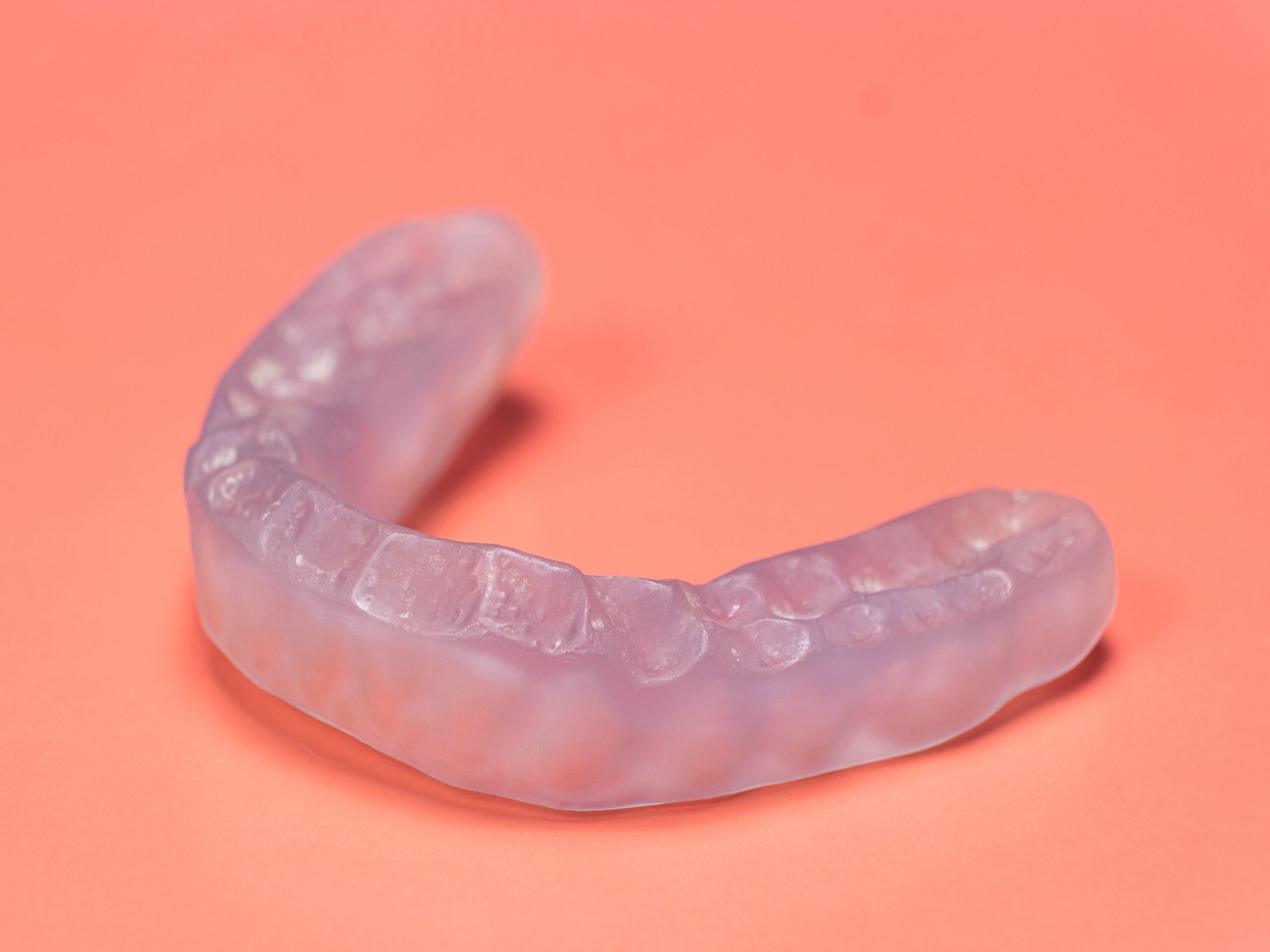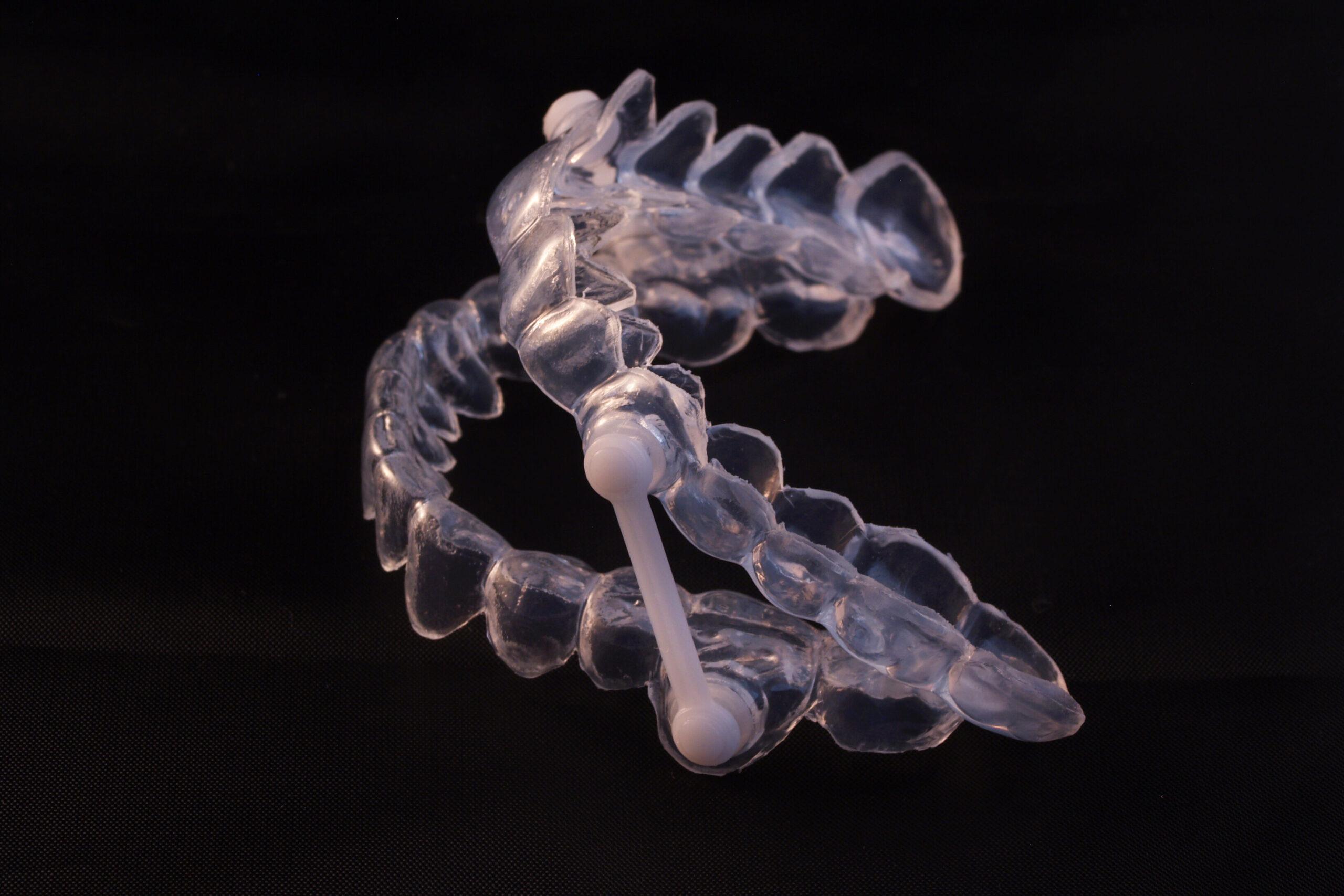Night Guards
How does a Night Guard Work?
A Night Guard works in three ways:
- A Night Guard protects teeth from chipping and wear by providing a flat, hard surface that discourages grinding and chewing at night.
- The hard material is less satisfying to chew or grind, reducing nightime grinding.
- Ensures front teeth and canines make contact first, signaling the brain to stop grinding since it prefers grinding with back teeth.

What about over the counter Night Guards?
Over-the counter night guards, such as “The Doctor’s Night Guard,” offer a budget-friendly solution for mild teeth grinding. Priced around $15-$20, it features a soft interior and a harder exterior, and is available at major retailers and online.
While it fits most mouths reasonably well, it is not customized and can be quite gummy, which may worsen grinding for some users. Despite these limitations, it can be effective for mild cases and is worth considering at this price point.
Is a custom Night Guard worth the cost?
Key Benefits of a Custom Night Guard:
| Custom Fit: Tailored to your bite and grinding patterns, with a hard-soft laminated mold for comfort and durability. |
| Optimized Surface: Features a hard outer shell and smooth acrylic surface for effective grinding resistance. |
| Anterior Ramp: Designed to ensure front teeth contact first during grinding, improving overall function. |
| Precise Adjustments: Custom adjustments are made based on your actual bite, with follow-up adjustments available for optimal performance. |
| In-House Production: Entirely crafted in-office for better customization, resulting in a more effective, comfortable, and affordable Night Guard. |
| Ongoing Care: Free checks, adjustments, and cleaning at every visit, regardless of where the Night Guard was purchased. |
What is an Obstructive Sleep Appliance (OSA)?
Sleep appliances, similar to Night Guards, are custom devides that keep your mouth in a specific position. Unlike night guards, they are designed to address airway obstruction (sleep apnea) by holding the lower jaw forward to keep the airway open and the tongue out of the way, improving breathing and reducing apnea. In some cases, these appliances may allow reduction or discontinuation of CPAP use, but any changes to CPAP use only be made after consulting with your prescibing doctor.

